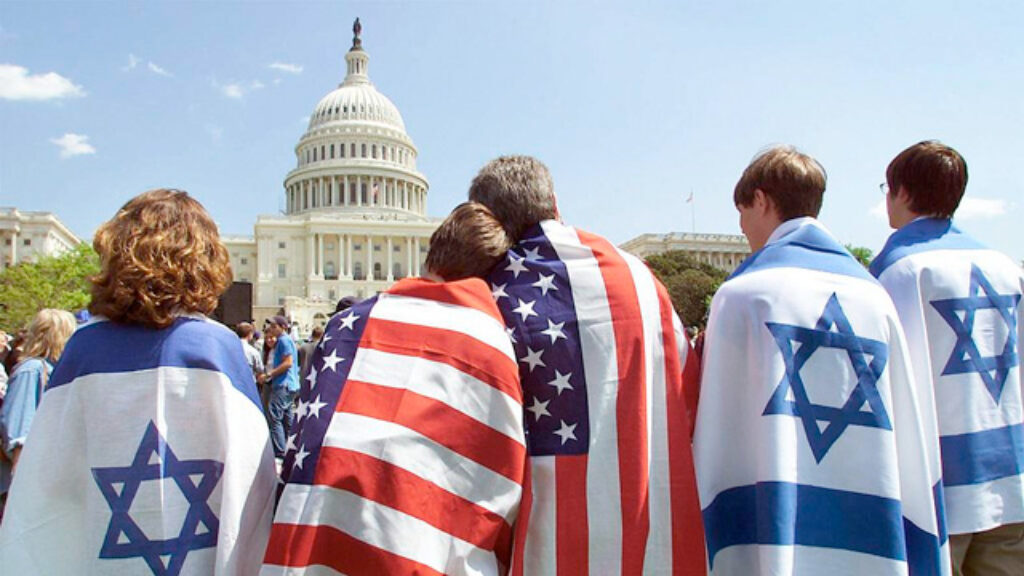Jewish Resilience in Times of Persecution and Prosperity, From Our Forefathers to the Present
BY JUDAH MARCUS
Resilience is a virtue that has been associated with Judaism for countless generations. Throughout Tanakh, there are a great number of stories about our ancestors demonstrating strength and resolve in times of crisis, whether external or internal crises. Although accounts of Jewish resilience have often been in response to outside pressures, particularly anti-Semitism, Jewish resilience is foremost a value and behavior interwoven within our history and religious doctrine. It is precisely this strong connection to an enshrined resilience that will enable Jews to maintain our personal strength long into the future.
In the first Jew himself, Avraham, we learn the foundation of resilience and its tight connection to our heritage through his title as an “עברי,” a “Hebrew.” The Midrash1 presents three interpretations of why Avraham is called an עברי. The first two are technical: Rabbi Nechemiah asserts that it was since Avraham was a sixth-generation descendent of Ever, and the Sages claim that it is because he came from “across,” which shares a root with עברי, the river into the land of Israel. Rabbi Yehudah’s opinion is profound, and almost scary. Utilizing another meaning of עבר, “other,” he explains Avraham’s title: “The entire world is on one side and he is on the other side.” Avraham’s belief in a singular God instead of many gods required an immense amount of courage and perseverance. As Avraham’s descendents, we are called by the translation of עברי, the “Hebrews,” associating our nation with resilience despite being cast as the “other” throughout history.
Avraham demonstrated this resilience during his confrontation with Mesopotamian King Nimrod, as recorded in the Midrash2. Avraham logically proved the foolishness of worshiping man-made objects to his idol-worshiping father Terach, and to no avail. Infuriated at his son’s ideological rebellion, Terach sent Avraham to King Nimrod to be punished. Nimrod, a fire worshiper, suggested Avraham worship physical phenomena that were not man-made, first offering fire, which Avraham countered by suggesting to worship its extinguisher water. Nimrod accepted worshiping the water, but then Avraham countered again, suggesting the clouds that dispense the water. After two more exchanges, with Avraham suggesting the wind that moves the clouds, or a human body which contains wind’s byproduct, air, Nimrod realized Avraham’s refusal to worship anything but one Divine God.
He threw Avraham in a burning furnace and declared “let the God to whom you bow come and save you.” Avraham’s God delivered and saved Avraham’s life. By disproving the divine power of any created element, Avraham disproved the possibility of anything aside from a divine, supernatural, creator. Much like Avraham’s strong resilience against one of the most powerful kings of his time, opposition—and in effect, solitude—allows Jewish resilience to shine through. Avraham’s resilience is tested over and over again during his life, yet he never waivers in his conviction to God. Avraham’s stories exemplify a resilience characterized by internal conviction, and shown through external struggle.
Avraham’s grandson, Yaakov, is often known as the forefather who faced the hardest circumstances. Throughout his 147 years, Yaakov was forced to flee his murderous brother Esau, was deceived regarding employment and marriage several times by his father-in-law Laban, lost his beloved wife Rachel at a young age, was separated from his favorite son Yosef for 27 years, and left the Land of Israel due to a harsh famine. While preparing for a reunion with his brother Esau, he put together a message which included the following phrases: “I have lived (גרתי) with Laban…,”3 and using the Gematria numerical system, Rashi equates the word for “lived” with תריג, “taryag,” a word used to numerically represent the 613 mitzvot in the Torah. Yaakov managed to maintain his mitzvah observance even while residing with his cunning uncle Laban. First, Yaakov committed to his spirituality in order to continue to build his resilience. Later, upon leaving Laban’s house, Yaakov credited his financial success and physical resilience amidst the hard working conditions to the “plight and the toil of my hands.”4 Similarly, our resilience in keeping the commandments has fueled our people’s success and survival throughout Jewish history.
Generations later, Moshe and Yehoshua reminded our people to tap into our heritage and “be strong and courageous” while preparing to enter the Land of Israel. The fact that these calls came before encountering potential enemies and obstacles underscore their intrinsic value to the Jewish people. These leaders preached that physical resilience in the face of enemies would only be possible if coupled with prior spiritual resilience no matter the obstacle. Only then would the people “have good success wherever [they] go.”5
But who is to say that all these stories matter? Those were our ancestors, after all, and their stories of resilience could just as well be separate from ours. Just as modern Jew hatred and our modern challenges differ in source and nature from versions that existed thousands of years ago, our resilience might as well be a result of history or external influences.
The Ramban brings down a famous Judaic precept that illustrates why these stories matter to us in our generation: “כל מה שאירע לאבות סימן לבנים.” “All that occurred to the fathers is a sign for the children.” The actions and circumstances of our ancestors are replicated, in some way, in us, and the stories of their resilience are crucial to our learning how to act. In other words, the passing of the Abrahamic tradition includes these characteristics of resilience from generation to generation.
This transmission is instilled through the teaching of Torah, which literally means “instruction.” Relaying these stories about our ancestors and leaders empowers Jewish youth to learn from and emulate their actions. Our uniqueness as a nation has engendered a large amount of animosity towards us, which has often provided backgrounds for these stories of Jewish resilience. Each challenge the Jews have faced has been driven by our people’s commitment to living a life modeled after our ancestors.
It is crucial to note the historical truth that times of trouble and distressing circumstances have often been the backdrop of Jewish resilience and made it necessary. To then think that Jewish resilience is a direct result of those circumstances might seem straightforward, but this theory requires a more limited view of history. Zooming in on specific events would perhaps cause one to reach that conclusion. However, after analyzing Jewish history through both eras of persecution and prosperity, pain and peace, one sees that Jewish resilience is characterized by a tradition-based spiritual resilience because of our place as an outsider, which then gives rise to physical resilience during times of crisis.
From exile to blood libels to pogroms, resilience—a spiritual commitment born and developed during prosperous times, and highlighted in times of trouble—is an inherent element of our Jewish identities.
Citations
- Genesis Rabbah 42:88
- Genesis Rabbah 38:13
- Genesis Rabbah 35:5
- Genesis 31:42, with Rabeinu Bahya’s commentary
- Joshua 1:7
Suggested Reading

A New Viewpoint on Diversity
Often, it seems that the people who talk about diversity never visit diverse communities. People seem to think that diversity is based on how one looks. True diversity is not about how someone looks, but how they act.

My Real Internal Conflict is Not One of Clashing Interests
When do my Jewish interests and American interests conflict? After much careful internal deliberation, I have concluded that they do not.

Regaining our Power Through Knowledge: The Solution to Rising Anti-Semitism on Campus
An emotional connection to our Judaism cannot be our only solace. Knowledge is the solution to the problem Jewish students face today.

Our God-Given Light: Its Meaning and Basis in Jewish Tradition
BY RAANAN VANDERWALDE There is a Jewish belief that it is our role to shine a light unto the nations. Many of us are familiar with this idea and shape…